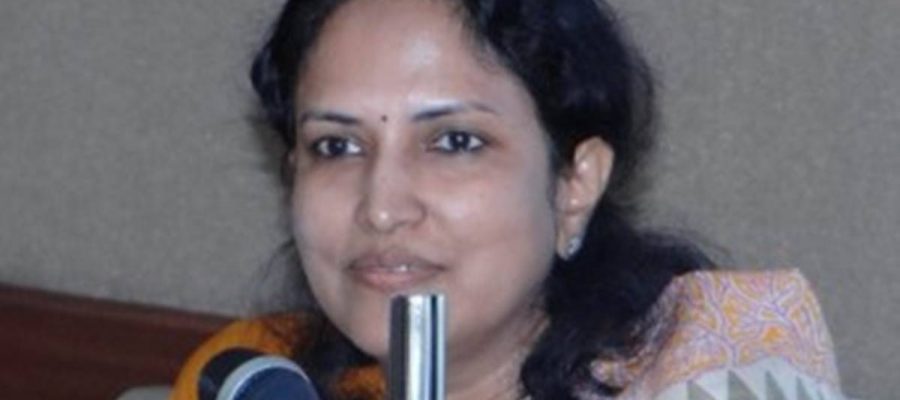Sources told The Sunday Express that the collegium is weighing its options to either send the judge back to the district judiciary from where she was elevated in February 2019 or extend her probation by a couple of years — and added that it is more likely to take the latter option.
The Supreme Court Collegium is set to withdraw its recommendation to appoint additional judge of the Bombay High Court Justice Pushpa V Ganediwala as a permanent judge of the court after a close scrutiny of two of her recent verdicts for their controversial interpretation of sexual assault under the Protection of Children from Sexual Offences Act, 2012 (POCSO) Act.
Sources told The Sunday Express that the collegium is weighing its options to either send the judge back to the district judiciary from where she was elevated in February 2019 or extend her probation by a couple of years — and added that it is more likely to take the latter option.
In the past, the Supreme Court’s unique in-house mechanism of appointing judges has made indirect interventions — from tacit requests for resignations to ensuring alternative quasi-judicial appointments — while handling concerns on the conduct of non-permanent high court judges.
It is learnt that by breaking this convention, the collegium could not only set a precedent for direct intervention when a judge’s actions are closely scrutinised but also send a strong message to judges to abide by judicial propriety.
“The only issue that was flagged before the collegium was that of the quality of the judgments and nothing more.
There is no question about the judge’s probity or integrity,” a source told The Sunday Express.
On January 19, Justice Ganediwala acquitted a man of sexual assault on the grounds that pressing the breasts of a child over her clothes without direct “skin to skin” physical contact does not constitute “sexual assault” under the Protection of Children from Sexual Offences (POCSO) Act.
Saying that Section 8 of POCSO provides for stringent punishment of five years’ of rigorous imprisonment, she observed that “stricter proof and serious allegations are required”. So the man was convicted “under minor offence u/s 354 of IPC and sentenced to undergo RI,” the judge said. The maximum sentence is five years and the minimum one year for an offence under this section. On January 27, the Supreme Court stayed this order.
Born in 1969 at Paratwada in Maharashtra’s Amravati district, Justice Ganediwala was directly elevated as a district judge in 2007. She was a panel advocate for banks and insurance companies and also taught in various colleges in Amravati and the Amravati University.
For appointment as additional judge of the Bombay High Court, Justice Ganediwala’s name was first recommended by the High Court in November 2017 and came up before the SC collegium in September 2018 along with five other judicial officers from the state. The collegium deferred her candidature.
“As regards Smt. P.V. Ganediwala, Judicial Officer…having regard to the material on record and all relevant factors, her case deserves to be deferred for some time. The proposal would be taken up for consideration by the Collegium after some time,” said the collegium statement on September 11, 2018.
The three-member collegium at that time comprised of then CJI Dipak Misra, Justices Ranjan Gogoi and Madan Lokur.
The High Court’s recommendation was taken up again in January 2019 with the collegium comprising former CJI Ranjan Gogoi, former Justice AK Sikri and (then) Justice S A Bobde.
This time, on January 16, 2019, the collegium said: “Having regard to all relevant factors, the Collegium is of the considered view that Smt. P V Ganediwala, Judicial officer, is suitable for being appointed as Judge of the Bombay High Court.”
The Sunday Express has learnt that the collegium received two strong notes of dissent from consultee-judges of the Bombay High Court Justices A M Khanwilkar and D Y Chandrachud. Despite these, the collegium sent its recommendation and she was subsequently appointed as additional judge.
“Even then the issue was the merit of her judgments. It seemed that the judge had more experience in teaching rather than in legal practice,” said a source.
Although three most senior judges of the SC, headed by the CJI, form the collegium that decides on appointment of judges to HCs, judges familiar with the working of particular High Courts are consulted for their views.
Additional judges to High Courts are appointed either from the Bar directly or state judiciary under Article 224 (1) of the Constitution for a period not exceeding two years.
The age of retirement for additional judges of high courts is also 62 years. Additional judge posts are constitutionally intended to deal with the “increased burden of the court” but are increasingly used as probationary periods for judges before they are promoted as permanent judges.
This is because once a judge is made a permanent judge, constitutional immunity kicks in to protect them for removal from office — under the constitution, impeachment of the judge is the only process to remove a judge of a constitutional court from office.
District judges are subjected to the disciplinary jurisdiction of the high court but there is no mechanism to scrutinise performance of a permanent judge.
If a member of the Bar appointed as an additional judge is neither given an extension nor promoted as a permanent judge, she demits office automatically. However, in the case of a judge elevated from the state judiciary, as is the case with Justice Ganediwala, the judge may have to return to the previous office as a district judge.
Source: Read Full Article


